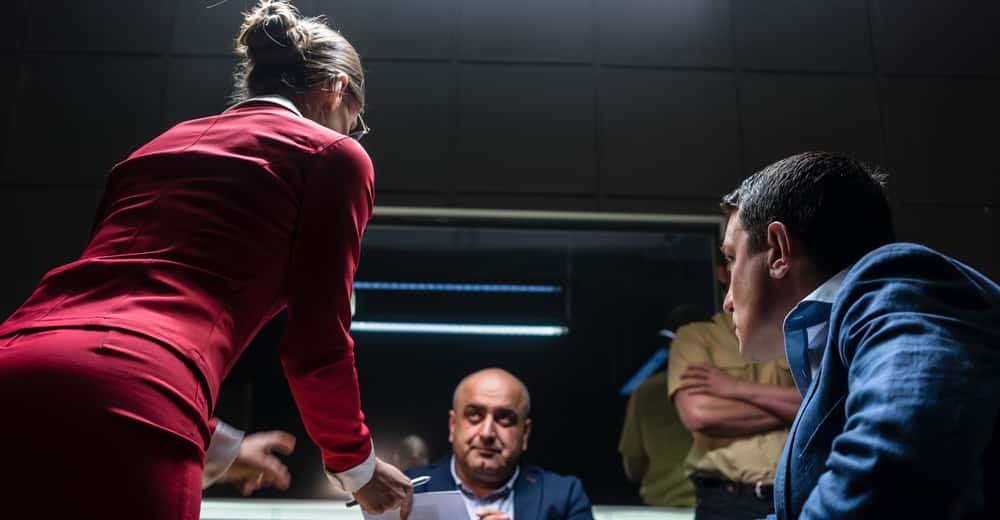Tips To Choose the Best Criminal Defense Lawyer
There are over 1.3 million active attorneys in the United States. How do you begin to choose a lawyer when there are so many to choose from? They can’t all be great lawyers. Choosing a criminal defense lawyer is a big decision. Here are 5 tips to help you choose the best criminal defense lawyer for you.
The Best Criminal Defense Lawyer for You
Choosing a lawyer is not just about choosing the best criminal lawyer. Yes, you want to find a good criminal lawyer but you want the best one for you. That means you want one who is going to meet your needs and must understand the whole matter
A Lawyer with the Right Experience
Not all lawyers are the same. Some specialize in personal injury and others in criminal law. Even criminal lawyers may specialize. Some are newbie, some are experienced.
Check the Team
Preparing a case for the court is not a one-person job. Even a very good defense lawyer needs a team behind them. Check to see whether there are an administrative team, paralegals, and other criminal lawyers in Greensboro NC backing up your lawyer.
heck References
Find a good criminal lawyer and you will find a reputation to match. Ask friends and associates for recommendations. Ask for references and talk to previous clients.

Selecting a Criminal Defense Attorney
If you’ve been arrested for or charged with a crime—regardless of how serious—it’s a good idea to talk to an attorney. Depending on your financial situation, you might consider hiring a private criminal defense lawyer. (Another option, again depending on your finances, is court-appointed counsel; self-representation is also possible but usually a bad idea.)
Hiring a criminal defense attorney is an important decision and there are lots of attorneys who handle criminal cases. Below you’ll find some information that might help you navigate the process.
Don’t Delay
It’s usually best to talk to a criminal lawyer as soon as possible after being arrested. Although your first court date may be a ways out, finding a lawyer can take some time, and there might be things you can do in the meantime to improve the outlook of your case. For instance, if your case involves drugs or alcohol, an attorney might advise you to get into treatment or start going to 12-step meetings like Alcoholics Anonymous (AA), even before going to court for the first time.
Finding the Right Attorney
Because there are so many criminal defense attorneys out there, the task of selecting one can be daunting. Here are some suggestions and considerations that might help you make the choice
Free Consultations
Most criminal defense attorneys offer prospective clients a free initial consultation. Taking advantage of this opportunity to meet the attorney and get some of your questions answered doesn’t obligate you to hire the attorney. But an in-person consult will often give you a good idea of whether you can work with a particular attorney or firm.

Tips for Choosing the BEST Criminal Lawyer
Whether you are facing theft, DUI or some other charge you need an experienced criminal attorney helping you fight your case. With countless lawyers to choose from, it can be difficult to find the one right for you. How do you know who to trust with your case and your life?
Choose a lawyer with a passion for the law. You don’t want a lawyer that is just doing their job representing you. You need a lawyer that loves their work. Look for an attorney that will listen to your story, show interest and fight for you
All experience is not the same. Years of experience working on tax law is not the same as courtroom experience defending those with charges similar to yours. Find a lawyer that specializes in your charges
Trust your feelings. How does your prospective lawyer make you feel? You want someone that will act as your advisor, explaining your options and then letting you choose. If your lawyer makes you uncomfortable or pressures you into making a decision, choose someone else.
It takes a village to raise a child and a strong legal team to prepare for court. Getting ready for court isn’t a one man job. Your attorney will rely on others as they work your case. Ask to meet the administrative staff, paralegals and other lawyers.

TIPS ON CHOOSING THE BEST CRIMINAL DEFENSE ATTORNEY
Law is so large an entity that no definite word or phrase can actually define it. This is because there are different laws to cater to different situations of life. There is civil law, which is the law that relates to laws connected with personal relationships, marriages and interpersonal circumstances like a personal injury case. On the other hand, criminal law is that branch of law that defines a crime, the victim and the violator of the law.
As criminal law is a large branch in the field of law, this branch is again divided into two sections. Each of these sections has its own professional criminal defense lawyer. The first section of criminal law is criminal procedure, which defines how a trial has to be conducted. With criminal procedure law, it is proven how claims have to be examined and how proof of a crime has to be collected. The criminal defense attorneys who are experts in criminal procedures have a system of collecting evidence in favor of the client. As this criminal defense attorney is specific about the client’s rights of the law, they maintain the doctrine ‘innocent until proven guilty’ throughout the trial of the client.
Substantive criminal law is the other section of criminal law. The criminal defense attorney specializing in substantive criminal law works with the people charged with the crime. The criminal defense attorney is usually approached by the violator of the crime. However, sometimes, the lawyer may also be selected by the court to represent the client who may not be able to hire a lawyer because of financial circumstances. The criminal defense attorney has to meet the client, and the client has to relate the scene of the crime, giving true statements. Everything spoken here is and remains confidential. Then the criminal defense lawyer has to defend the client to help him or her achieve success in the court.
You can tell if the criminal defense attorney is a good one or not by his approach to a case. The good criminal defense attorney collects as much facts of the case from the client and the investigators. It is then up to him to create a strong case wherein the client will not be charged gravely. However, in the case of the client being truly guilty of the crime, then it is up to the criminal defense attorney to present the facts of the situation such that it is possible to maintain a doubt of guilt.
The good criminal defense attorney will try his level best to make the punishment allotted to the guilty client is befitting the crime done by the client. It is always better to get some testimonials on a lawyer before hiring the criminal defense attorney. Your friends and family is the best people to approach to find out information on the criminal defense attorney. The good criminal defense attorney is one who stands by the client till the end of the trial, to make sure that the client gets as favorable an outcome as possible.
How to Choose a Defense Attorney
Just like you wouldn’t visit a podiatrist to treat an ear infection, you shouldn’t go to a tax attorney if you want to sue the driver who rear-ended your car. There are many areas of law and a lot of different types of lawyers who deal with them. When your freedom is on the line, it’s important to seek the correct representation
But once you’ve narrowed down the list from all lawyers to only criminal defense attorneys, how do you choose? Here are some things to consider when selecting a defense lawyer
Where Do I Find a Defense Attorney?
Whether you are being investigated for a crime or have already been charged, you want to have the best criminal defense lawyer you can afford fighting for you. A good place to start is by asking people you trust for referrals, including friends (if you feel like you can talk with them about your case), family members, and non-criminal defense attorneys that you may know. These individuals are a great resource because, rather than just gathering a list of names, you can ask questions about their suggestions such as whether the attorney was on time for appointments, reasonably available to answer questions and organized.
If the thought of sharing personal details with acquaintances makes you uncomfortable, you can anonymously visit countless websites online. The American Bar Association has state-specific information and there are several professional associations specializing in criminal defense (the National Academy of Criminal Defense Attorneys, the Association of Federal Defense Attorneys and the National Association of Criminal Defense Lawyers are just a few). Independent legal referral websites also offer a ton of information.
Choosing One
Once you’ve narrowed down the list, it’s often time to set up face-to-face meetings, although in a pinch (for example, if you get arrested and taken to jail one night and have your first court appearance the next day) much can be done over the phone or via video conference such as FaceTime or Skype. Many lawyers offer a free initial consultation. Bring along a summary of your case with details such as when you were arrested, the circumstances of the arrest, what the charges are and whether anyone else was involved. This consultation should help you understand the charges, what the prosecutor must prove or establish to find you guilty, the available defenses, any key pretrial issues, what plea bargains might be offered and the possible consequences you may face. It is important to have a lawyer who puts in sufficient time to learn about your case and plan your defense, so if you don’t feel comfortable with his or her analysis, that may be a red flag. While a lawyer can give you an idea of possible outcomes, he or she cannot promise a certain result. Any criminal defense attorney that does is not someone you should choose, because the result cannot be guaranteed in advance – it hinges on negotiations with the prosecutor at best, and a judge and jury at worst.